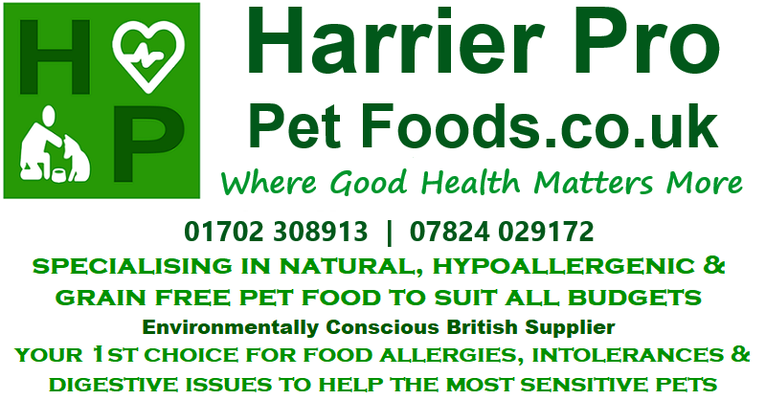Pet Food Intolerance or Pet Food Allergy?
A pet food intolerance and a pet food allergy are seen as two separate dietary issues.
Pet Food Intolerance
A pet food intolerance is a digestive problem rather than an immune response. A food intolerance occurs when your pet's digestive system is unable to digest a particular ingredient.
For example, lactose intolerance is a common condition in which a dog is unable to break down lactose (a sugar found in milk).
The signs of food intolerance include mostly digestive related issues such as gas, bloating, nausea, vomiting or diarrhoea and do not create a typical allergic response. Food intolerances in pets would be similar to people who get diarrhoea or an upset stomach from eating spicy or fried foods.
Pet Food Allergy
A pet food allergy happens when your pet’s immune system wrongly views a particular food ingredient as harmful and then creates defensive antibodies to fight the invading enemy (the particular food).
If your pet gets a food allergy, it's probably not because you changed his diet. Pets can become allergic to proteins in foods they've been eating for a long time.
Common food allergens include the following -
- Beef
- Chicken
- Wheat
- Eggs
- Dairy
- Soya
Food allergies are proper allergies and show the characteristic symptoms of itching and skin problems associated with dog and cat allergies. Common symptoms of a pet food allergy include skin rash, hives, paw biting, runny poop, hair loss, ear infections, excessive licking and sometimes nausea or vomiting.

Common Causes
A food intolerance or allergy can be caused by your pet consuming a specific food or even preservatives, dyes, fillers, contaminants or even the natural proteins in the food. Your pet could also have an allergy to a certain food, such as wheat or corn. A good way to pinpoint these allergies is by feeding your pet one of our hypoallergenic, grain free or natural diets, one that doesn't contain certain ingredients in your pets current diet.
Many Helpful & Effective Diets Available
We have a vast selection of allergy specific diets available for you to choose from. Duck is an excellent protein source regarding allergies. Sweet potato is also a great choice as a carbohydrate source for allergies and intolerances and has many health benefits too.
The following pet food ranges are fantastic at helping to prevent the most common pet food intolerances and allergies at prices to suit all budgets;
- Gourmet Grain Free Dog Food
- Gourmet Grain Free Cat Food
- Natural & Hypoallergenic Dog Food
- Hypoallergenic Premium Dog Food
- Hypoallergenic Premium Cat Food
Cost Effective Elimination Diet
During an eight to ten week test period, your pet can only eat our allergy specific diet, with no treats or goodies allowed. This is an easy way to determine a food allergy in your pet, and less expensive than the standard skin testing.
